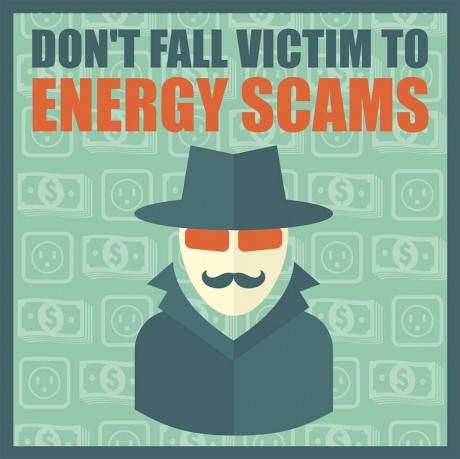Savings beyond belief
Protect yourself against energy claims too good to be true
By Brian SlobodaA quick search of the Internet reveals many great ways to save energy around your home. Simple things, such as adding insulation or using energy-efficient light bulbs, are simple and relatively inexpensive ways to save small amounts of energy.
The same search will also reveal “amazing” products that claim to cut up to a third of your energy bill — without you changing your energy use habits. Claims like this sound too good to be true, and there is good reason for that. These claims almost always turn out to be exaggerations or downright lies.
An energy efficiency scam is generally easy for a person who works at an electric cooperative to spot and identify. However, it isn’t so easy for most people. Scams generally center around misstatements of science or confusion over utility programs.
Too good to be true
A popular scam is a little box that promises to save you energy. The box is a device that supposedly saves energy without the consumer making any changes to behavior, turning anything off or adjusting the thermostat. The people who sell these boxes often claim outrageous energy savings — sometimes as much as 30 percent or more. They often use terms, such as power conditioning, capacitors and power factor, all of which are legitimate industry terms.
The sales pitch usually goes something like this: The device being sold will control alternating current, power factor and reduce the cost of electric bills. It will condition your power and make appliances last longer. The device uses no power and has no moving parts. It will make the motors in your home run better. The sales material often claims that the utility doesn’t want you to know about the device. That last part is actually true — because it is a rip off. Variations of the product have been sold to both residential and commercial customers.
There are several questions that you should ask a salesperson (or yourself!) when reading an ad for the next magical cure-all:
- Does it violate the laws of science? Some products claim that they are capable of “changing the molecular structure … to release never-before tapped power.” Changing the laws of science is no easy task. If the inventors truly can do this, the product will surely be sold at every store in the nation, and they will become very wealthy. They won’t be mailing out flyers or operating from a poorly designed web site.
- Was the product tested by an independent group like a national lab or university?
- Is it too good to be true?
Sometimes energy scammers contact consumers directly, either by calling or stopping by and claiming they represent the local electric co-op. Never give anyone personal or financial information who claims to be an employee of the co-op without confirming their identity. If they call, ask for a call back number, then verify their identity with your co-op. If they stop by, ask the person for a valid employee ID.
Asking tough questions and being skeptical will not offend honest people. Remember, if it sounds too good to be true, it probably is.
-
Share this story:



